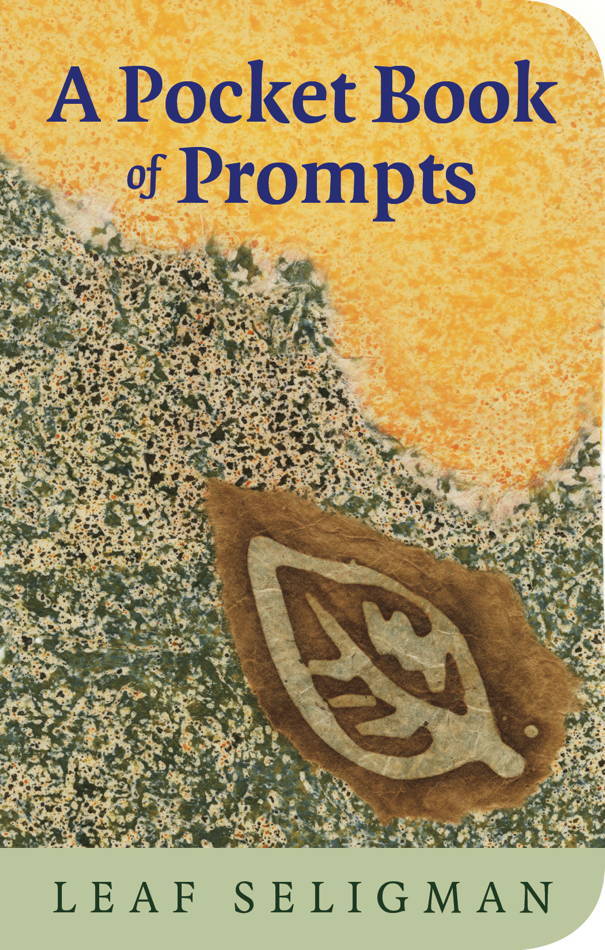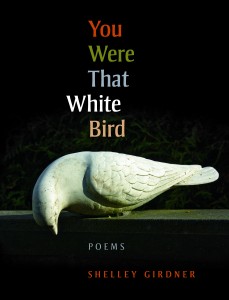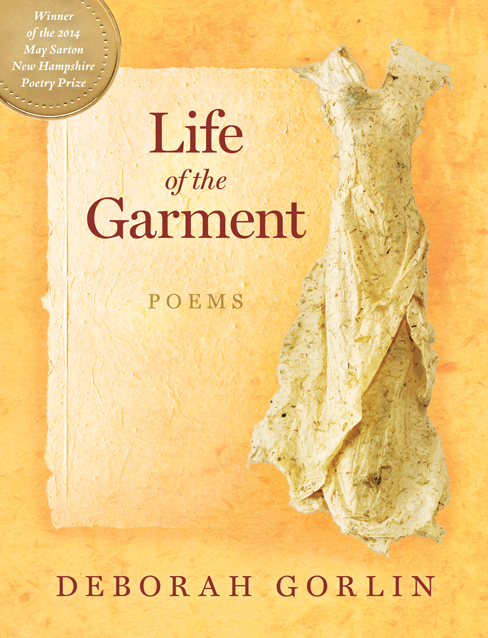A Pocket Book of Prompts by Leaf Seligman
– Reviewed by Penny Boxall –
What a little darling of a book. A Pocket Book of Prompts is, unlike many ‘pocket’ editions, exactly that: slim, narrow, the corners thoughtfully shorn to prevent unexpected jabs as the user grabs for it from pocketty home. Even the author’s name is small and cute. Leaf has been teaching, her biography says, for many years, and the prompts contained herein are very practised. Sometimes the prompt is for the very reluctant, young or tongue-tied; the first half falls under the category of ‘First Day Prompts’, full of student ice-breakers. Others are more weighty stuff (‘If grief is a water table that rises and falls, is the ground dry, squishy or saturated today?’ – from the second half of the book, on ‘Deeper Reflection’). There’s a very successful exercise on the theme of ‘failure’.
The format of the prompts themselves isn’t varied hugely, which means this is best used as a classroom aid or incidental at-the-bus-stop dipper rather than for more sustained writing. Generally, once you start, you’re on your own: the prompts sit at the top of the page like wise and unapproachable gnomes. You can’t ask them for explanation or advice, which is both a help and a hindrance.
Sometimes, they’re a little bit worthy, though noticeably this happens mostly in the first section. ‘What makes life real to you?’ ‘When have you felt engaged in your education?’ These smack a little too much of the Careers office, and I can’t feel that the responses they provoke would be particularly fertile. On occasions the layout dictates that response-writing, if you wish to write directly into the book, would be very restricted: ‘Would you die for anyone?’ [Space for one-word answer.] ‘If so, who?’ At other times, they can be frustratingly non-specific: ‘If you could be born into a different culture, geography, status, nationality, religious background, or other identity, what would you choose and why?’ It sounds like a question from a particularly inclusive episode of Blind Date. (‘Well, Cilla, I’d be a Bedouin, because I’d love to see the bed-you-in.’) I think it’s the task of the prompter to be specific, and for the writer to find ways to dodge the net of the remit if she wants to.
But maybe that’s just me. It’s hard, it transpires, to review a book of prompts, precisely because the thing it’s prompting isn’t there, and its potential is huge. Is the quality of the prompt reflected in the quality of the writing it initiates? I’m not sure. In different writers’ hands any of these ideas could become – well, anything. I began to find this the most exciting aspect of the book: not only my own nascent poems, but also others’ unguessable travails. For example, a long prompt begins with possibly one of the best imperatives I have come across: ‘Consider disappointment’. This could be an All Souls examination question.
I can attest that the second-half is, for me as a writer, by far the most fecund; but in teacher-mode I certainly wouldn’t shirk the first half. The hardest thing about writing can be just bloody well doing it, and this thoughtful, appealing book – even if it doesn’t strike lucky every time (and what prompt could?) – is a happy find.





